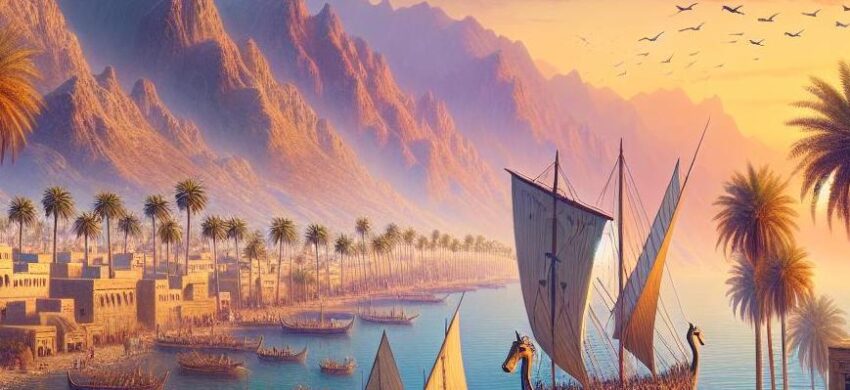The Phoenicians, noted ancient traders and explorers, brought their rich culture and skills across the Mediterranean world through a combination of trade, innovation, and colonization. Establishing city-states such as Byblos, Tyre, and Sidon around 3000 BC, they developed a reputation for naval proficiency and commercial acumen. By 800 BC, their influence spread from the Levant to the Iberian Peninsula, North Africa, and even the mainland of Italy.
Notable instances of Phoenician expansion include their establishment of powerful colonies like Carthage in present-day Tunisia around the 9th century BC. This colony subsequently became a key hub for their trading networks and helped the spread of their cultural and social practices.
Other significant Phoenician colonies include Malaga and Cadiz in Spain, and Palermo in Sicily. The founding of these colonies is a testament to their outstanding seafaring skills. The Phoenicians designed vessels for different purposes, used the stars for navigation, and devised the earliest known alphabet, thereby revolutionizing communication.
Their expansion also brought significant cultural fusion, impacting everything from language to architecture across the Mediterranean region. Thus, the Phoenician legacy continues to influence the Mediterranean lands long after their own civilization faded.
#1. Question: Who were the ancient traders and explorers who spread their culture and skills throughout the Mediterranean world?
C is the answer. The text explicitly mentions that the Phoenicians were ancient traders and explorers who spread their culture and skills across the Mediterranean world.
#2. Question: Which city did the Phoenicians establish in present-day Tunisia around the 9th century BC?
D is the answer. The text specifies that the Phoenicians established the city of Carthage in current-day Tunisia around the 9th century BC.
#3. Question: Which tool did the Phoenicians use for navigation during their seafaring ventures?
D is the answer. The text states that the Phoenicians used the stars for navigation during their seafaring ventures.
#4. Question: What was the significance of Phoenician colonies like Carthage, Malaga, and Palermo?
C is the answer. The text describes these colonies as key hubs for their trading networks, spreading their cultural and social practices.
#5. Question: What civilization innovation is the Phoenicians known for?
A is the answer. The text specifically states that the Phoenicians devised the earliest known alphabet, revolutionizing communication.
#6. Question: What areas of culture did the Phoenician expansion impact?
A is the answer. As per the text, Phoenician expansion brought significant cultural fusion, impacting everything from language to architecture across the Mediterranean region.
 |
 |
 |





